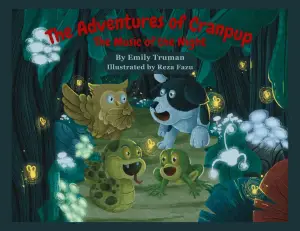Engaging with the Unseen: A Review of The Waiting Game: The Untold Story of the Women Who Served Henry VIII by Anna Clark
I must admit, as a self-proclaimed Tudor enthusiast, I often find myself drawn to the stories of the queens and mistresses who navigated the treacherous waters of Henry VIII’s court. When I stumbled across Anna Clark’s The Waiting Game, I felt an irresistible pull—not just because of its tantalizing title, but also because it promised to unveil the often overshadowed narratives of women who played pivotal roles during this turbulent period. What struck me immediately was a powerful assertion that resonated deeply with me, echoing the sentiment that “women’s history does not need to be exceptional to be relevant.” This perspective is not only refreshing; it’s vital.
Clark expertly guides us through the notorious marital escapades of Henry VIII, weaving a rich tapestry of the political and personal dynamics that shaped his decisions. While she covers the familiar ground of his six wives and mistresses, it’s the lesser-known tidbits—like the compelling political undercurrents behind Anna of Cleves’ divorce—that truly enrich our understanding. I found it illuminating to learn about how shifting alliances and political motives shaped personal relationships, particularly since I had previously encountered oversimplified narratives regarding Anna’s fate, often reduced to her portrait or demeanor. The anecdote about Henry’s treatment of Anna, highlighted by an ambassador’s scathing remarks, offered a fresh lens through which to view their experience, turning my understanding of their marriage upside down.
On the whole, Clark’s writing is accessible, making her detailed research approachable for casual readers and tudor junkies alike. However, I did find myself grappling with a couple of stylistic choices. For instance, her tendency to leap into scenes without clear temporal markers sometimes left me disoriented. I often wished for a bit more signposting—like a historical timestamp—to ground the narrative. Additionally, while I cherished the archival details she shared, I often found myself pausing, trying to decode Tudor-era language without adequate context or interpretation. A little more guidance on these quotations would have been appreciated—after all, the juiciest tidbits can lose some flavor when shrouded in archaic syntax.
Despite these minor quibbles, The Waiting Game is a delightful read that opened my eyes to the multifaceted roles women played in a world dominated by men. Anna Clark’s examination is crucial for anyone wanting to delve deeper into the hidden stories of these figures—stories that resonate well beyond the walls of the Tudor court.
I would recommend this book to fellow fans of Tudor history, those who love podcasts like Six Pack or The Tudor Files, and readers who thrill at revisiting the Royal Diaries of Elizabeth I. It’s a solid addition to any history lover’s shelf and serves as a brilliant reminder that the narratives of women, even those considered “non-exceptional,” are indeed pivotal to our understanding of history. Reflecting on my reading experience, I find myself not only informed but inspired; I appreciate the complexities of these women’s lives and the context that shaped their decisions. In a world where women’s voices still fight to be heard, Clark’s work is a powerful reminder of their enduring significance.
Discover more about The Waiting Game: The Untold Story of the Women Who Ser… on GoodReads >>






